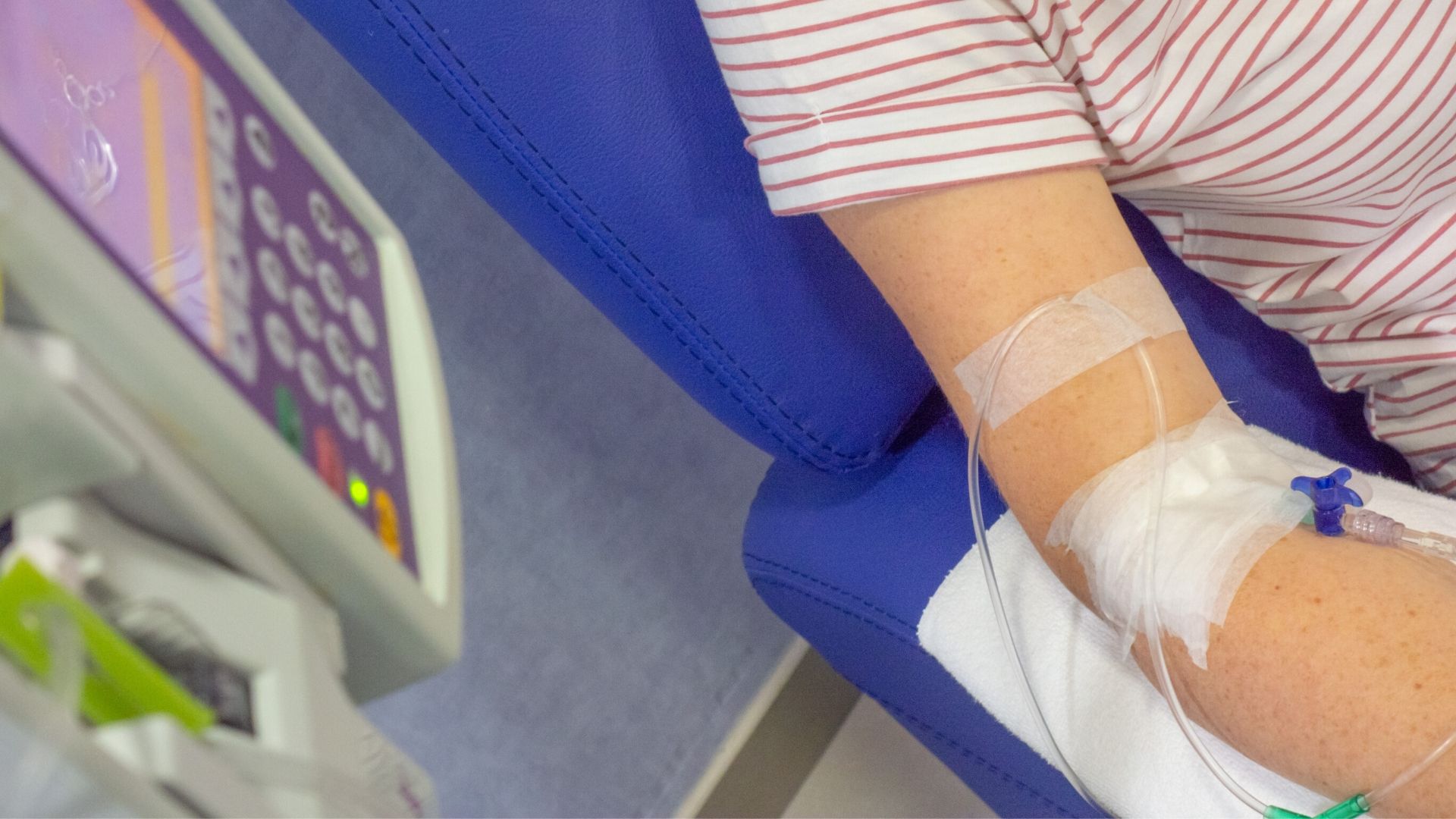Increased risk of infection

What is it?
You may be more likely to pick up infections, and even minor infections such as a cold or sore throat could make you ill.
It happens because cancer or cancer treatments can reduce the number of white blood cells in your blood. With fewer white blood cells your immune system cannot fight infections properly. Even a small infection could make you very ill. You will have regular blood tests to measure your number of white blood cells.
What causes it?
- Cancer that affects the blood or bone marrow, which produces white blood cells.
- Cancer treatments like chemotherapy or other cancer drugs.
What are the symptoms?
- A sore throat or cough
- Stinging or burning when you pee
- Redness or swelling at the site of your central line
- A temperature above around 38°C (100.4°F) or below 35°C (95°F)
- Feeling shivery or unwell, even if your temperature is normal

Ask your nurse about how to check your temperature and what to do if you feel unwell or have a high temperature. They will give you a number to call and tell you when you need to contact them.
What should I do if I have symptoms?
Contact the hospital straight away, even at night. Some hospitals prefer you to ring the ward directly. Check this with your nurse or doctor before you start treatment.
You may be asked not to take paracetemol or other medicine that will mask an infection while you are on treatment.
How is it treated?
If you have a high temperature or feel unwell, you will need to have a blood test to see if your white cells are low. You may also need antibiotics or other medication in hospital to treat the infection.
- Antibiotics. If you get an infection, an antibiotic will be given to bring it under control quickly. Intravenous antibiotics (antibiotics given into a vein) may be needed.
In special cases, you may be given antibiotics to prevent you from getting an infection or for emergency use. This may apply if you are at home or when travelling.
- Growth factors and immunoglobulins. Drugs called growth factors can help your bone marrow to make more white blood cells quickly to prevent infection. These are given by injection under the skin (subcutaneously). A common one used to boost white cells is called G-CSF.
If you get serious recurrent infections, your doctor may decide to give you immunoglobulins into your vein.
Tips and hints – avoiding infection
- Avoid crowds and close contact, such as hugging or kissing, with people who have colds or flu and other infections. This includes chickenpox, shingles or measles.
- Ask your doctor about any vaccinations available to protect you.
- Let your doctor know if you are in contact with these or any other infections.
- Wash your hands often during the day, especially before you eat and after going to the toilet. You could also carry an antibacterial handrub to use when you’re out and about.
- Avoid unpasteurised milk, soft cheeses, undercooked meat and poultry, and the skin of raw vegetables and fresh fruit.
- Avoid fast food or takeaway food.
- Check with your doctor about which vaccinations are recommended for you and make sure you get them.
Vaccinations
- You will probably be advised to get the flu vaccine every year and the pneumonia vaccine every 5 years.
- Shingles (herpes zoster virus) can also be a common complication and you may be given anti-viral drugs to prevent this infection.
- Some vaccines are not suitable if your immune system is low. For example live vaccines. So get advice from your doctor about which vaccines are helpful and safe for you.
For more information
Phone
1800 200 700



